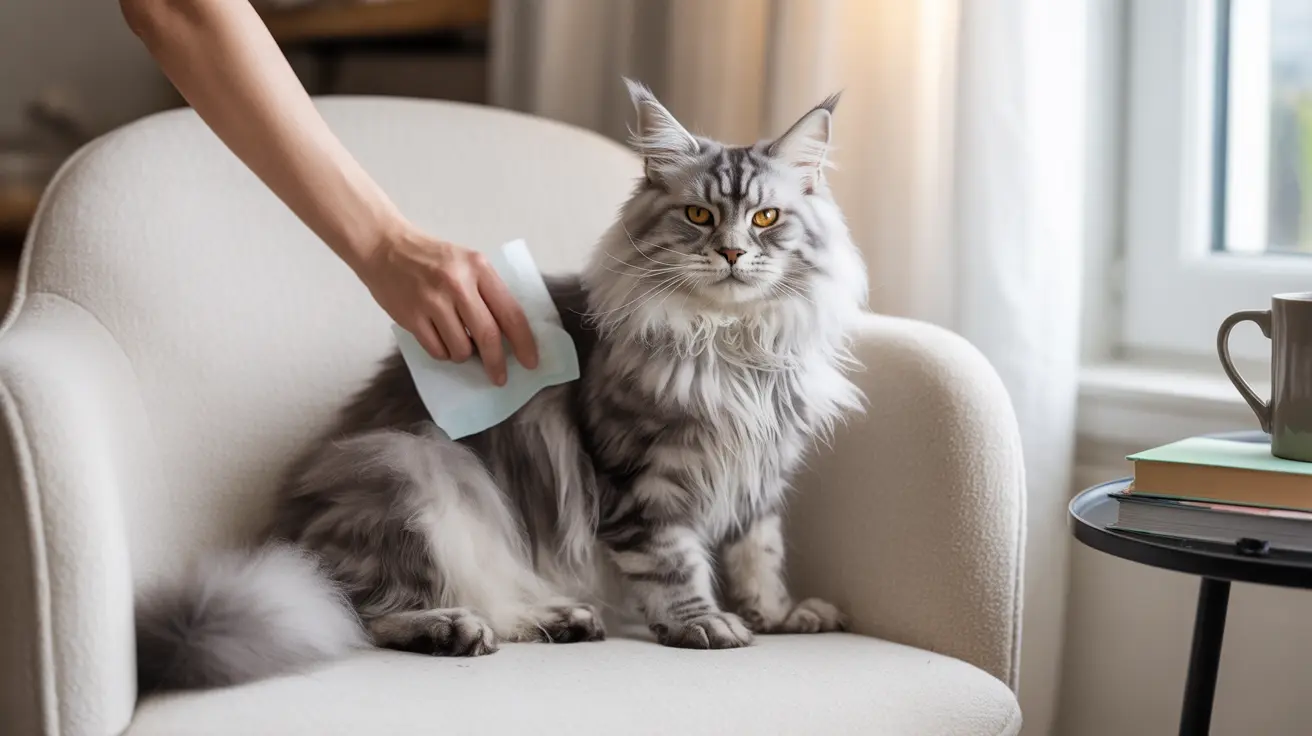If you've noticed your cat smelling like poop, you're not alone. This unpleasant issue affects many cat owners and can signal various underlying problems, from simple hygiene issues to more serious health concerns. Understanding why your cat has developed this odor is the first step toward resolving it effectively.
In this comprehensive guide, we'll explore the main reasons behind this common problem and provide practical solutions to help your feline friend stay fresh and healthy.
Common Causes of Cat Poop Odor
Litter Box Issues
The most straightforward cause of poop smell on your cat often relates to their litter box habits. Cats using dirty litter boxes may accidentally step in waste or get it stuck to their fur while covering their business. Additionally, low-quality litter might not effectively absorb odors, leaving residue on your cat's paws and fur.
Poor Grooming Abilities
Some cats struggle with self-grooming due to age, obesity, or health conditions like arthritis. When cats can't properly clean themselves, fecal matter can accumulate in their fur, particularly around the rear end. This is especially problematic for long-haired breeds, who may need extra grooming assistance.
Anal Gland Problems
Cats have two small anal glands that can become infected or impacted, leading to a distinct foul odor. These glands normally release small amounts of scent during defecation, but when they're not functioning properly, they can leak or cause discomfort, resulting in a persistent poop smell.
Health-Related Causes
Digestive Issues
Gastrointestinal problems can lead to loose stools or diarrhea, making it more likely for waste to stick to your cat's fur. Common culprits include:
- Food intolerances or allergies
- Inflammatory bowel disease
- Parasitic infections
- Sudden dietary changes
Medical Conditions
Sometimes, a poop-like smell can indicate serious health issues such as:
- Liver disease
- Diabetes
- Kidney problems
- Dental disease
Solutions and Prevention
Improving Litter Box Maintenance
- Scoop the litter box at least once daily
- Completely change litter weekly
- Use high-quality, clumping litter
- Provide multiple litter boxes in multi-cat households
- Clean the actual box with soap and water monthly
Enhanced Grooming Routine
- Regular brushing, especially for long-haired cats
- Trim fur around the rear area if needed
- Use pet-safe wipes for spot cleaning
- Schedule professional grooming when necessary
Diet Modifications
- Feed high-quality, easily digestible food
- Make dietary changes gradually
- Ensure adequate water intake
- Consider probiotics for digestive health
When to See a Veterinarian
If your cat's poop smell persists despite improved hygiene and grooming, consult a veterinarian, especially if you notice:
- Changes in eating or drinking habits
- Diarrhea or constipation
- Signs of pain or discomfort
- Excessive grooming or scooting
- Weight loss or lethargy
Frequently Asked Questions
Why does my cat smell like poop even if the litter box is clean?
Your cat might smell like poop despite a clean litter box due to anal gland issues, stuck fecal matter in their fur, or underlying health problems. Long-haired cats are particularly susceptible to trapped waste in their fur.
How can I tell if my cat's poop smell is caused by anal gland issues?
Signs of anal gland problems include scooting, excessive licking of the rear area, visible swelling near the anus, and a strong, fishy or fecal odor that persists even after cleaning.
What diet changes can reduce the poop odor coming from my cat?
Switch to high-quality, easily digestible food, introduce changes gradually, and ensure proper hydration. Some cats benefit from probiotics or specialized digestive support formulas recommended by their veterinarian.
How do I help my cat stay clean if they can't groom themselves properly?
Assist with regular brushing, use pet wipes for spot cleaning, trim long fur around the rear area, and consider professional grooming services. For elderly or mobility-impaired cats, maintain a consistent grooming schedule.
When should I take my cat to the vet for a persistent poop smell problem?
Seek veterinary care if the smell persists despite improved hygiene, or if you notice additional symptoms like diarrhea, lethargy, changes in appetite, or signs of discomfort. These could indicate underlying health issues requiring professional treatment.






